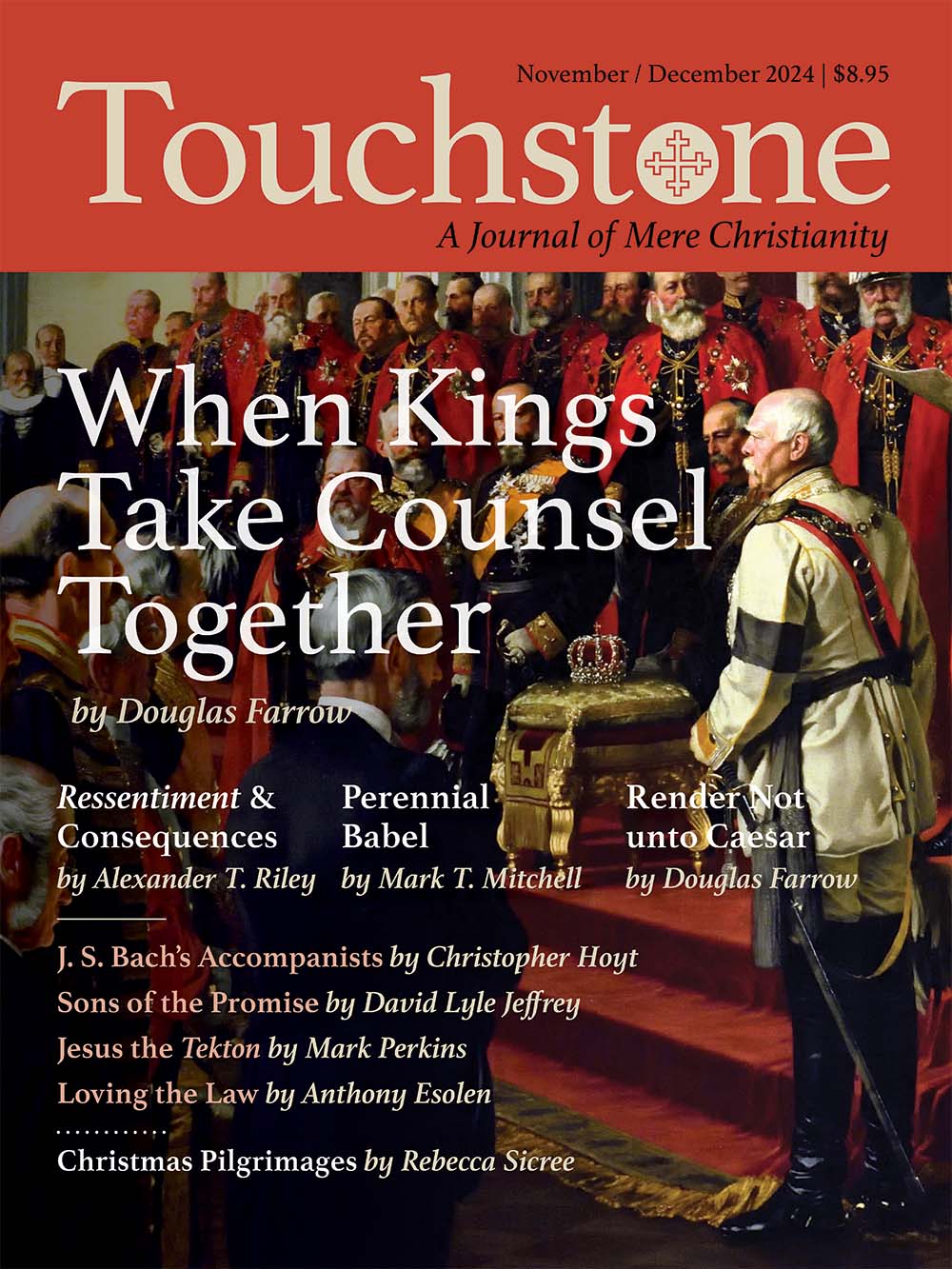Where Even the Ivy May Bear Fruit
When I attended Princeton, there were, and I believe there still are, several a cappella groups who would stand underneath one of the arches and regale passersby with song. I don’t remember hearing any of them singing Christmas carols, though I suppose they did. I certainly do not remember hearing any of them singing hymns.
There was a time, of course, when the Ivy League schools were affiliated with the Christian faith. They have since given themselves up to principalities and powers; they are engines of ambition, and their greatest boast is not to have nurtured good men and women, but celebrated men and women, who leave their marks on the world in the world’s own ways. “I don’t suppose anyone believes in the soul anymore,” said my moral philosophy professor in the first semester of my freshman year, and he said it as a matter of fact, because it was clear that he did not believe in such a thing. If there is no soul to nurture, what is left for the young person with brains but to seize the day? To seize it, I mean, not as fruit to be plucked, but as inert stuff to be crushed or molded or galvanized or something that brings fame or wealth or power.
A Sublime Irony
Yet, as I say, it was not always so. I am now looking at a Christmas hymn from The Columbia University Hymnal (1921), and I am struck immediately by the startling fact that the university had a hymnal of its own. The hymns are scored for four parts, so I imagine the choir may have brought in local schoolboys to sing treble, and that, too, would suggest a healthy and homely relationship between the college and the church congregations roundabout. The hymn is Dies est laetitiae. If you search for the text online, you may well come upon a garbled mess, because many an editor understands Latin no better than a machine does. Yet the boys at Columbia would have sung the hymn in the original Latin. Martin Luther translated it into German verse, which you may find in the Evangelische-Lutherische Gesangbuch (1848) in Gothic script, along with the thirteenth-century Latin text in Roman script.
THIS ARTICLE ONLY AVAILABLE TO SUBSCRIBERS.
FOR QUICK ACCESS:
Anthony Esolen is Distinguished Professor of Humanities at Thales College and the author of over 30 books, including Real Music: A Guide to the Timeless Hymns of the Church (Tan, with a CD), Out of the Ashes: Rebuilding American Culture (Regnery), and The Hundredfold: Songs for the Lord (Ignatius). He has also translated Dante’s Divine Comedy (Random House) and, with his wife Debra, publishes the web magazine Word and Song (anthonyesolen.substack.com). He is a senior editor of Touchstone.
subscription options
Order
Print/Online Subscription

Get six issues (one year) of Touchstone PLUS full online access including pdf downloads for only $39.95. That's only $3.34 per month!
Order
Online Only
Subscription

Get a one-year full-access subscription to the Touchstone online archives for only $19.95. That's only $1.66 per month!
bulk subscriptions
Order Touchstone subscriptions in bulk and save $10 per sub! Each subscription includes 6 issues of Touchstone plus full online access to touchstonemag.com—including archives, videos, and pdf downloads of recent issues for only $29.95 each! Great for churches or study groups.
Transactions will be processed on a secure server.
more from the online archives

28.2—March/April 2015
Man, Woman & the Mystery of Christ
An Evangelical Protestant Perspective by Russell D. Moore
calling all readers
Please Donate
"There are magazines worth reading but few worth saving . . . Touchstone is just such a magazine."
—Alice von Hildebrand
"Here we do not concede one square millimeter of territory to falsehood, folly, contemporary sentimentality, or fashion. We speak the truth, and let God be our judge. . . . Touchstone is the one committedly Christian conservative journal."
—Anthony Esolen, Touchstone senior editor









